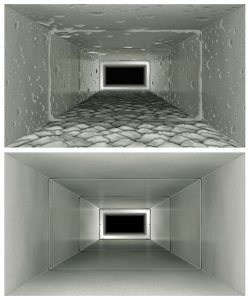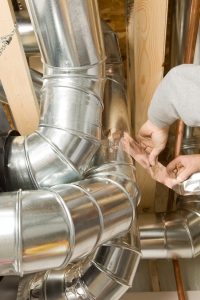When it comes to the efficiency of your HVAC system, you may not often think about the ductwork hidden within the walls, ceilings, and floors of your home. However, this network of ducts plays a crucial role in delivering conditioned air to every room. If these ducts become damaged, it can lead to significant issues such as wasted energy, increased utility bills, and a system that struggles to maintain your desired comfort level. Understanding how ductwork can get damaged in the first place can help you take proactive steps to protect your HVAC system and know when you need duct repair in Fenton, MI.
First Choice Heating & Cooling Blog: Posts Tagged ‘duct repair’
How Your Ductwork Can Get Damaged in the First Place
Monday, September 9th, 2024Home Performance and the Condition of Your Ducts
Monday, November 11th, 2019 Just what does home performance mean? You may hear the term thrown around and not have understood the exact definition.
Just what does home performance mean? You may hear the term thrown around and not have understood the exact definition.
There is plenty to say about home performance, but a simple working definition is that it is how all aspects of a house work together as a single unit to achieve the goals of energy efficiency, comfort, and health. A house with air leaks that create winter drafts and poor air circulation would be an example of poor home performance. Unfortunately, many homes suffer from poor home performance in Howell, MI, and their owners don’t even realize it.
Duct Cleaning Can Improve Your HVAC System
Monday, February 5th, 2018 If you had to take a second look at the headline to this blog because you’ve never thought about having your home’s ducts cleaned, you’re not alone. The reason for this is that it’s hard to remember to keep something clean when you can’t see it! Ducts are hidden inside the walls, ceilings, and attic of a house, and it’s easy for people to forget they’re there and doing an important job circulating hot and cool air.
If you had to take a second look at the headline to this blog because you’ve never thought about having your home’s ducts cleaned, you’re not alone. The reason for this is that it’s hard to remember to keep something clean when you can’t see it! Ducts are hidden inside the walls, ceilings, and attic of a house, and it’s easy for people to forget they’re there and doing an important job circulating hot and cool air.
Dust and lint build-up inside ductwork happens over time—there’s no way to avoid it. Scheduling regular cleaning every 3 to 5 years will prevent the ventilations system from becoming too dirty.
But … why do this at all? Do clean ducts really matter if you don’t have to look at them?

